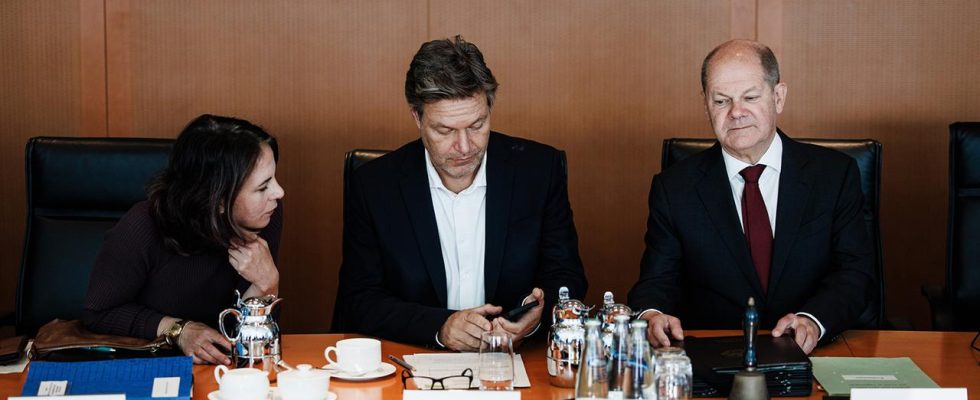The Federal Cabinet has introduced a regulation to extend the subsidies for network fees. A regulation has also been passed to extend the energy price brakes.
The federal government wants to reduce energy prices for consumers and industry with two measures. On the one hand, the federal cabinet introduced a legal change in order to curb electricity prices with a billion-dollar subsidy for network fees.
The four transmission system operators Amprion, 50Hertz, Tennet and TransnetBW announced in October that the nationwide usage fee for electricity transmission in the overland transport network should increase slightly in the coming year. The expected federal subsidy was already taken into account. The comparison portal Check24 today reported an eleven percent increase in the national average.
Network fees
The network fees are part of the electricity price that consumers pay. Taken together, they account for almost a quarter of the electricity price for households. This consists of the price for the electricity itself, but also fees for the use of the large supra-regional transmission networks, the local distribution networks and other items.
Specifically, it is about a grant of up to 5.5 billion euros from the economic stabilization fund, as the Ministry of Economic Affairs announced. The subsidy would stabilize network fees, which would reduce the price of electricity and benefit all consumers, said government spokesman Steffen Hebestreit.
The Bundestag is to decide on a corresponding change to the Energy Industry Act (EnWG). The state had already spent around 13 billion euros to stabilize fees for 2023.
Extension of price caps initiated
On the other hand, the cabinet passed an ordinance to extend the gas and electricity price cap until the end of April 2024. These are currently limited until the end of December 2023. However, the Bundestag and the EU Commission still have to approve the regulation.
Federal Economics Minister Robert Habeck recently said about the planned extension: “The best case scenario is that we extend it and don’t need it. If we need it, it’s good that we extended it. It’s basically ‘no regret’.”
Reduced VAT should rise again sooner
According to calculations by the comparison portal Verivox, households on average would hardly benefit from an extension of the energy price brakes because the full VAT rate on gas is due again at the turn of the year. The government plans to raise the VAT rates on gas supplies and district heating again to 19 percent at the turn of the year. This was actually only planned three months later.
The CDU energy politician Andreas Jung said that the traffic light puts the extension of the energy price brake in the window and increases energy costs in the same winter by returning early to the increased VAT. “The brakes probably won’t work for many consumers, but the higher VAT certainly will,” said Jung. “The bottom line is that this is more of a price increase than a price brake.”
Criticism from the economy
The Federal Association of Energy and Water Industries and the Association of Municipal Companies see a timely and comprehensive implementation of the longer energy price brakes by municipal utilities and energy suppliers as of January 1, 2024 at acute risk.
There is no approval from the EU Commission; the approval of the Bundestag could take until mid-December. This left utilities and municipal utilities with only two weeks over Christmas to adjust billing systems and inform customers, they criticized.

